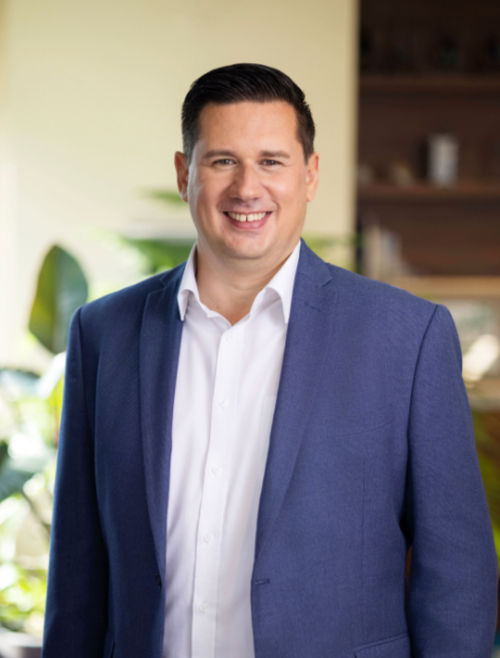A smile can undoubtedly brighten someone’s day, which is why a clunky CRM software is no laughing matter for Zenyum, a consumer-focused healthcare brand with a mission to “make Asia smile more.”
Since its launch in Singapore in 2018, the company now operates in nine countries, and thus needed a more powerful sales and CX tool that can support its ongoing growth.

According to Julian Artopé, Founder and CEO of Zenyum, the company had numerous CRM options available during its early years. However, the rapid expansion of Zenyum has quickly surpassed the capabilities of these solutions.
“We aimed to become more effective in our engagement flows and optimise the sales funnel journey—for both our customers and the salespeople interacting with them. Instead of utilising smart queues, we were relying on lists. Customers would enter our funnel and could either progress or be removed,” he explained.
While the initial solution deployed by Zenyum provided a basic overview of the sales funnel size, it failed to offer the necessary granularity for breaking down the past and live performance per customer success agent, which would have provided meaningful guidance.
“At the same time, we lacked the necessary integrations to let our customers choose how they wanted to work with us. Instead, we imposed limitations on them within our system. Scalability also became an issue as reports took a long time to run, impacting our productivity,” the Chief Executive continued.
Growth partner
Zenyum initially worked with an external consultant that specialises in migrating CRM systems.
However, the company eventually found a technology partner that offered the solutions they needed. Zenyum opted to utilise Salesforce’s Sales Cloud and Service Cloud solutions, which provided several benefits.
Gavin Barfield, Vice President and Chief Technology Officer, Solutions at Salesforce ASEAN, explained that Zenyum benefits from Salesforce’s Sales Cloud platform, which centralises all customer information. This consolidation enables Zenyum to gain a comprehensive view of their customers. In addition, the platform offers “intelligent” recommendations for identifying the most promising leads. These insights are presented through “user-friendly” reports and dashboards.
Barfield emphasised that this functionality is designed to assist Zenyum’s sales leaders and employees in analysing a wealth of data across different business functions and countries, potentially reducing the reliance on specialised data scientists.
“Sales leaders can see real-time reports to understand how the organisation is doing as a whole and the specific areas where business units or regions need support to meet sales and revenue goals. Team leads can also understand how their reports are tracking for the week, month, or quarter, and how a specific team member is doing,” the CTO explained.
Meanwhile, Service Cloud and Customer 360 enables the consolidation of data to improve customer experiences, while seeking to facilitate efficient and intelligent operations for service teams.
“This is achieved by using connected data to provide real-time insights powered by AI, customising experiences for customers and teams. With the help of Tableau, service agents can access real-time insights and recommend next steps to continuously improve the customer experience,” Barfield said.
As an example, the CTO explained that the data gathered through Salesforce helps Zenyum’s customer success executives to check in on every customer as they progress through their Zenyum process, from the initial pre-assessment to the completion of their treatment.
“Using these insights, our executives can deliver highly personalised communication to each customer, guiding them through their entire smile journey,” he added.
Brighter prospects
To effectively engage with its target audience of over 600 million people across Asia, Zenyum places significant importance on acquisition and lead scoring.
“We use an automated engagement and scoring program to assess the suitability of our marketing-qualified leads for our range of Smile Cosmetics. As a highly personalised brand, we strive to connect with every qualified lead and guide them through their individual smile journey with Zenyum,” said Artopé.
Through the help of Salesforce, Zenyum is able to onboard each customer through its Zenyum mobile app, where they have access to personalised “Smile Support Service.”

“Our customers receive dedicated support throughout their smile journey, and we allocate significant resources to ensure that our support is both scalable and personalised,” Artopé explained.
Since partnering with Salesforce, Zenyum has significantly improved access to engagement data, which is now widely used across the company.
“For instance, our departments have the ability to generate their own reports and analyse market-specific and engagement-specific data. This approach enables our local markets to better understand their customers and make informed decisions on how to engage with them effectively,” Artopé noted.
Moving forward, Zenyum — said Artopé — is dedicated to ongoing platform improvements, and uses reports and notifications to prevent any customer from falling through the cracks.
“We have automated notifications in place to alert us if someone remains in the sales funnel for an extended period. Additionally, we are expanding the use of Salesforce across various departments to maintain a consistent user journey,” the Zenyum CEO said.
Meanwhile, in response to evolving customer demand and economic challenges, Salesforce is actively exploring a variety of technologies to help enterprises accomplish more with limited resources.
“Many businesses are already using data and automation to enhance efficiency, productivity, and customer service. By integrating generative AI capabilities with EinsteinGPT, companies can take a significant step forward in boosting employee productivity and improving the customer experience,” Salesforce’s Barfield said.
The company launched EinsteinGPT earlier this year as the world’s first generative AI CRM technology, enabling the creation of AI-generated content for various interactions in sales, service, marketing, commerce, and IT at a large scale.
“For example, with EinsteinGPT for Sales, users can auto-generate sales tasks like composing emails, scheduling meetings, and preparing for the next interaction. With EinsteinGPT for Service, users can generate knowledge articles from past case notes and auto-generate personalised agent chat replies to increase customer satisfaction through personalised and expedited service interactions,” he concluded.
















